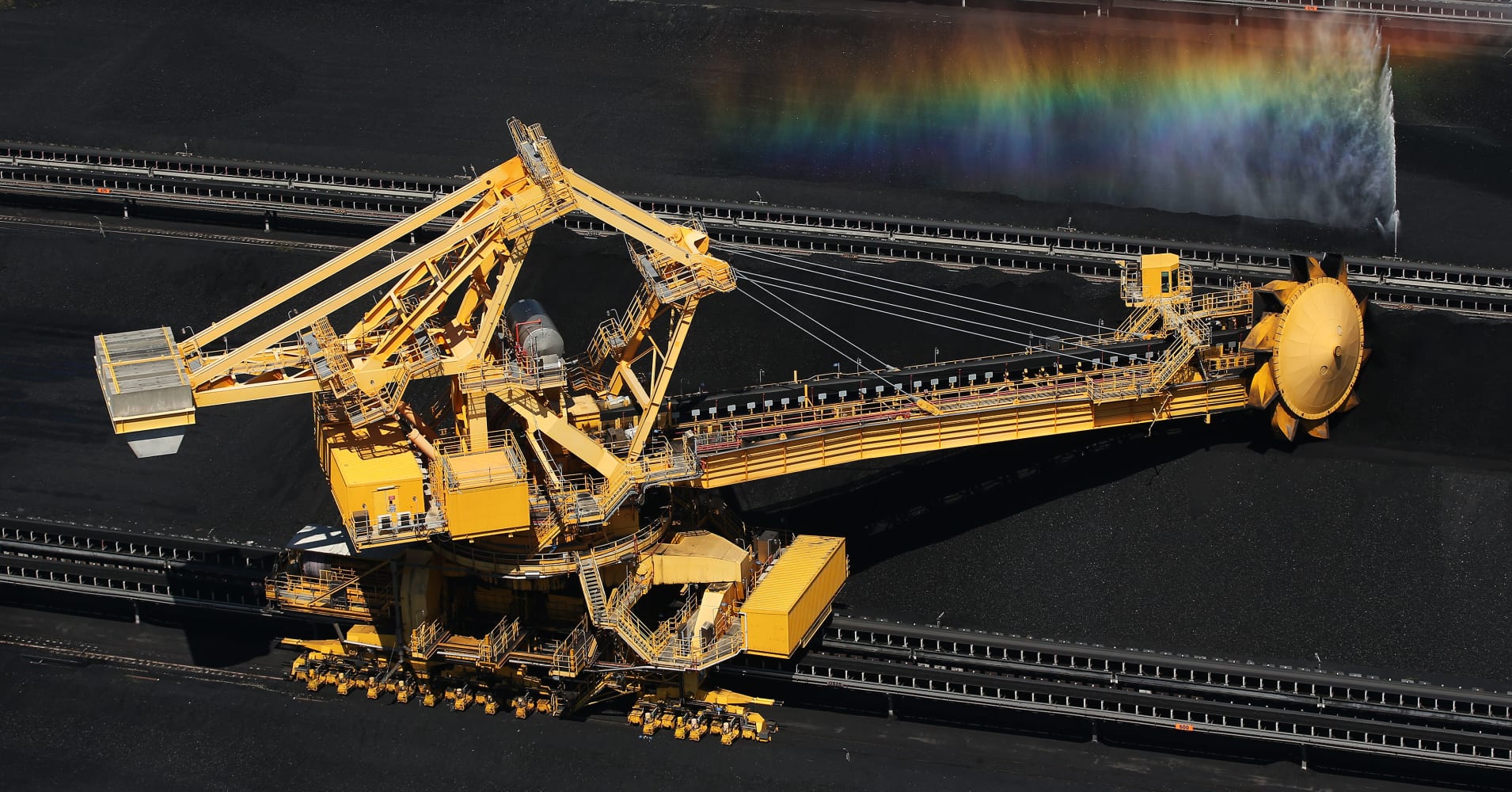
Commodities giant Glencore on Wednesday said it will cap the amount of coal it produces each year, part of a broader plan to align its business with the global effort to prevent climate change.
Glencore is the world's largest exporter of thermal coal, the kind burned in power plants and a major contributor to planet-warming carbon emissions. The multinational miner on Wednesday said it will broadly limit its capacity to produce coal to current levels, or about 150 million tons per year.
The company instead plans to put capital to work churning out more copper, cobalt, nickel, vanadium and zinc, commodities that are used in electric vehicle batteries and other technologies that underpin the shift to a cleaner energy and transportation future.
"As one of the world's largest diversified resource companies, Glencore has a key role to play in enabling transition to a low carbon economy," the company said in a statement.
"To deliver a strong investment case to our shareholders, we must invest in assets that will be resilient to regulatory, physical and operational risks related to climate change."
To be sure, influential forecasters like BP and the U.S. Department of Energy see coal demand remaining essentially flat over the next two decades. That's because consumption is rising in parts of the developing world like India and Southeast Asia and dropping in developed nations.
Glencore's decision to limit coal output gives the company a way to continue profiting from the fossil fuel's continued use in emerging markets while meeting growing demands to contribute to the battle against climate change.
Morgan Stanley on Wednesday noted that Glencore's mines produce premium coal that packs a lot of energy and contains less sulfur. Most of those assets are also located the Pacific basin, putting Glencore in a good position to meet growing coal demand in Asia.
By restricting supply during a time of roughly steady demand, Glencore will help to bolster prices for the commodity and keep cash flowing from its coal segment, analysts pointed out on Wednesday.
Energy research firm Wood Mackenzie estimates that Glencore shipped nearly a quarter of the world's seaborne thermal coal last year, making it the biggest exporter of coal bound for power plants.
"Glencore is chasing value over volume," Prakash Sharma, research director at Wood Mackenzie, said in an email. He added that "companies holding on to high energy thermal coal assets stand to gain and will realise higher prices. Glencore sits comfortably in that space due to its competitive cost position."
Deutsche Bank called the coal cap "a small step in the right direction," but said "further commitments will likely be required over time."
Glencore laid out some additional climate commitments on Wednesday.
Next year, it will begin disclosing projections for lowering Scope 3 emissions, or greenhouse gas emissions not directly associated with its business, but with the activities of vendors and supplier. Glencore is also developing long-term reductions targets for Scope 1 and 2 emissions and aims to make them public in 2020.
Additionally, the company's board will start assessing its success aligning spending and investments with goals laid out in the 2015 Paris climate agreement, which aims to prevent global temperatures from rising by 2 degrees Celsius above pre-industrial levels.
The company is also considering tying executive pay to progress on climate change goals and reviewing whether its membership in trade groups clashes with those goals.
Glencore made the announcements after engaging with Climate Action 100+, an initiative focused on committing the world's biggest corporate greenhouse gas emitters to take steps to mitigate the impacts of climate change.
"Glencore's announcement is a significant step for the mining sector with potentially wide-reaching implications" said Emma Herd, CEO of the Investor Group on Climate Change and a member of Climate Action's steering committee.
No comments:
Post a Comment